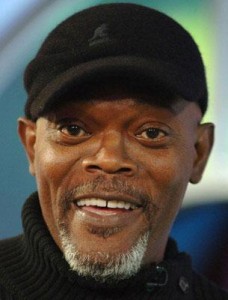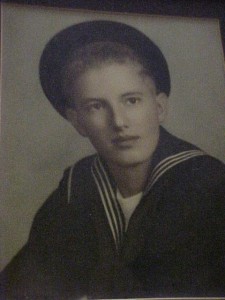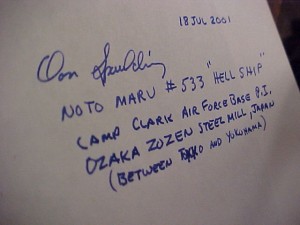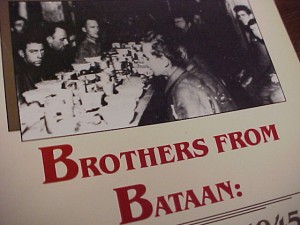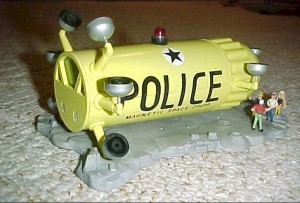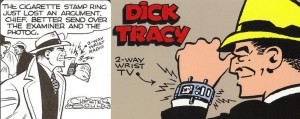What was your last “flashbulb memory?” That’s what they call events like 9-11, or the Murrah Building bombing in OKC, or the Kennedy assassination, or for some the attack on Pearl Harbor. We all have at least one.
Some of us remember all kinds of things in that “flashbulb” fashion.
Right now, I’m thinking about Samuel L. Jackson – the Pulp Fiction (and others) movie star, who has taken up the easier paycheck provided by television commercials. I hate to admit it, but I’m a student – of sorts – of the ad media.
I love to identify the voices of the people behind the scenes who are doing the “voice-overs” – those unseen narrators who are talking about cars, or travel destinations, or home improvement centers. Historically, those voices used to be broadcasters, but at some point agents managed to get their actor, singer, sports figure clients to lend their voices in hawking products. You’d be surprised at the A-list stars who are willing to sit down and record their voice for a fee.
Here is a new “flashbulb moment” for me. I’m sitting here in the bookshop office, doing some odds and ends (since I could not open for business today due to construction) and Samuel L. Jackson pops on the TV screen (in an ad that began Monday). He’s hawking the Capital One credit card and its Quicksilver cashback program. In the course of his exposition, he uses the word “Damn.” Like, “every damn day.”
It would have worked as “every day,” but the ad agency behind the spot, DDB Worldwide (the Omnicom Group) says it “evokes the provocative wallet scene with Mr. Jackson and Tim Roth” in the film “Pulp Fiction.”
As it stands, I believe it is the first time (thus, my flashbulb memory moment) I have ever heard (what used to be considered) a “swear word” used in a commercial. Damn.
We used to not use such language in public.
Particularly in broadcasting, controlled by the FCC. There were fines levied for the Jackson Wardrobe Malfunction, the George Carlin Seven Words, just about everything Howard Stern ever mentioned, the occasional F-bomb on the Oscars, and a long list of other assumed-to-be infractions.
I strive for a family friendly blog, and I’m only using the questionable words here in the context of this obsequious offering. The idea being, these things are surprising enough to me that they are stuck in my memory like the Kennedy Assassination. (Yes. I’m old enough to have that “flashbulb memory.”)
Jackson’s use of a once socially-questionable term isn’t the first TV recollection for me. (I admit, as a student of broadcasting in general, to me, these things are grossly obvious.) There was a network promotional announcement (different from a paid, commercial ad), that offered up as dramatic program directed by movie star Anjelica Huston in a made for TV program entitled “Bastard out of Carolina.” (Ironically, it was originally produced for airing on TNT, but the network refused to show it based on its controversial nature.) I suppose it was controversial for me, as well. I recall it as the first time I heard a “swear word” in a television ad of any type. (Bastard.)
Another “flashbulb” in the media belongs to KMOD radio, and an announcer (rare that I can’t recall exactly who it was working that afternoon-drive shift) who commented that it was “Raining like hell outside.”
I about fell out of my shoes.
As innocent as it sounds now, I had – never! – heard the word (as Radar O’Reilly described it) H-E-double-hockey-sticks used on the radio. Never. Ever. Like virgin speakers. Never. EVER.
Well… Come to think of it, that word might have been brought up in those Sunday morning religious broadcasts I was engineering, back in the early days, but I was (please forgive me, Lord) pretty much tuned out to the content. I was listening – (while reading the Sunday paper and twiddling my thumbs) – for program continuity, volume, and lack-of-dead-air (Silence). I believe my best radio-buddy-brother Rick might remember those early Sunday morning broadcasts… Inspiring to the flock, I am certain.
My sister Linda believes I remember everything. Of course, that is true. (I remember some things more clearly than others.) I was in the second row from the wall (to my right) where the door to the hallway was located, when the announcement sounded in my classroom about the shooting of John F. Kennedy. (The speaker was mounted on the wall in the upper right from my desk, a seat located fifth-from-the-front in the classroom.) We were asked to say a prayer for our president. (There’s more, in my recollection, but I won’t bother you with it…)
At any rate, the Samuel L. Jackson “Damn” commercial takes its place in the cranial archive of “flashbulb moments” that have caught me by surprise over the course of a lifetime. His pronouncement isn’t particularly grievous, just (significantly) of note, to me.
D++n. I’m showing my age, aren’t I?
It may be a photo-moment when the Rose District work is done, at last. Workers – presumably – will finish the outdoor construction sometime this week, and then – I’m hoping you’ll – come visit!
McHuston
Booksellers & Irish Bistro
Rose District
122 South Main Street, Broken Arrow OK !
